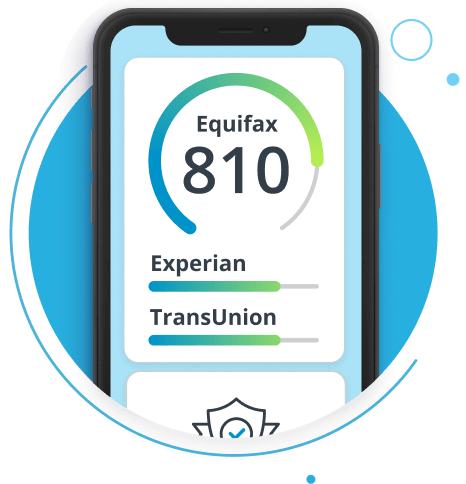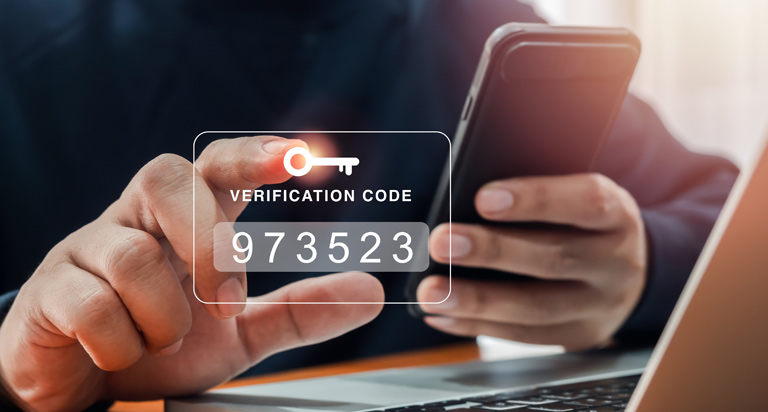Are You At Risk of Identity Theft?


Highlights:
- You may have several habits that might raise your risk of identity theft.
- Here are some suggestions to help better protect your personal and financial information.
- It's important to check your account details and credit reports on a regular basis.
Anyone can become a victim of identity theft, but some of your habits may be increasing your risk. Here are some habits you may want to stop to help protect your personal information.
Repeating passwords
Your passwords provide an easy opportunity for identity thieves. They can access your accounts, install malware and steal your information. Some hackers may use trial and error to guess your passwords. They use details about your work or home life that they can find online or in your social media posts. That's why you need to use passwords that are unique and hard to guess, especially on financial websites. Don't reuse passwords on different accounts. You should use at least eight characters for your passwords. Be sure to combine upper and lower case letters, numbers and special characters.
To keep track of your passwords, consider a password manager. These are websites or apps that store passwords for you. You only need to memorize a master password to access them. There are many different password managers. Do your research to make sure the one you pick is secure and double-blind (meaning the passwords are encrypted so the app or site administrators can't see or access them).
Financial information is easy for others to access
Your sensitive financial information should never be in an accessible location. Don't write your PIN on your card, for example. Be especially careful with checkbooks. Each check has your name, routing number and bank account number on it. This is all anyone may need to transfer money from your account.
Consider the following ways to secure your financial information and documents.
- Keep your checkbook, statements, and any other important documents at home in a lock box.
- Use checks only as a last resort.
- Mail checks, passports, or things with your personal information using a security envelope. Make sure it includes a pattern to mask the contents. Don't leave the envelope in your mailbox or your office's outgoing mail. Take it to the post office yourself. You may also want to consider sending important documents by certified mail.
Carrying your Social Security card in your wallet
Your Social Security number is a gateway to your identity and credit information. It may be priceless to an identity thief wanting to establish credit in your name. That's why you should store your Social Security card in a locked drawer or lockbox. Check the cards you carry with you, like health insurance cards. If they have your Social Security number on them, consider not carrying them unless you need them.
Opening email attachments and links
Email servers block many “phishing” attempts and spam messages. But some may still sneak through. Be careful not to click on embedded links or attachments in an email if you aren't sure whether it's legitimate. You can hover over the links to see where they go and if they look correct. Cyber thieves can also hack into your email and intercept emails while they are being sent. Don't email passwords or other financial details to anyone, even yourself.
There are a few other safe practices around email you can take.
- Be wary of any email that asks for financial information or seems urgent.
- If you get an email that threatens to disable or delay services until you update your information, contact the company. Phishers use scare tactics to overwhelm their targets. Do not use the phone number within the email as it can connect you to the scammers. Find the phone number on the company's website or on a recent bill.
- Hover over the sender email to see whether it looks legitimate. Read the email for typos, misspellings, and poor grammar. This may be a sign of a phishing scam. Most companies take steps to keep their emails free of grammar and spelling mistakes.
Read more about cybersecurity and protecting your identity.
Rarely review financial statements
It's a great idea to review your financial statements often. Make sure every transaction listed is accurate before paying your bill. If you notice a charge you don't remember making, contact the company immediately.
The same is true for bank account statements. You may have to pay for fraudulent debit card transactions if they aren't reported by a specific time. Almost all the popular credit cards offer zero fraud liability on unauthorized charges. This means you won't owe on any charges determined to be fraudulent. Review bank account details and monthly bank account and credit card statements. This can help to detect signs of potential fraud.
Not checking your credit reports
Identity thieves who have access to your personal information may open up new loans. They rack up debt in your name and leave those debts unpaid. Monitoring your credit reports is one way to help detect suspicious activity. Be sure to look for signs of fraud or identity theft.
Create a myEquifax™ account to get free Equifax® credit reports. You can also get your free weekly credit reports through www.annualcreditreport.com from each of the three nationwide credit reporting agencies—Equifax, Experian® and TransUnion®.
Here is a checklist to use when reviewing your Equifax credit report.
Make small changes to your everyday habits to help reduce the odds of identity theft. Start by using these strategies to protect your personal and financial information.

Don't wait another day to build your credit confidence. With Equifax Complete™ Premier, know where you stand with access to your 3-bureau credit report.



